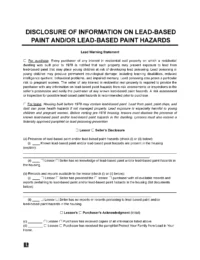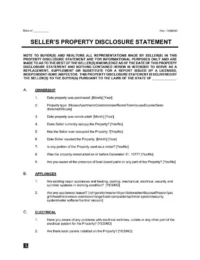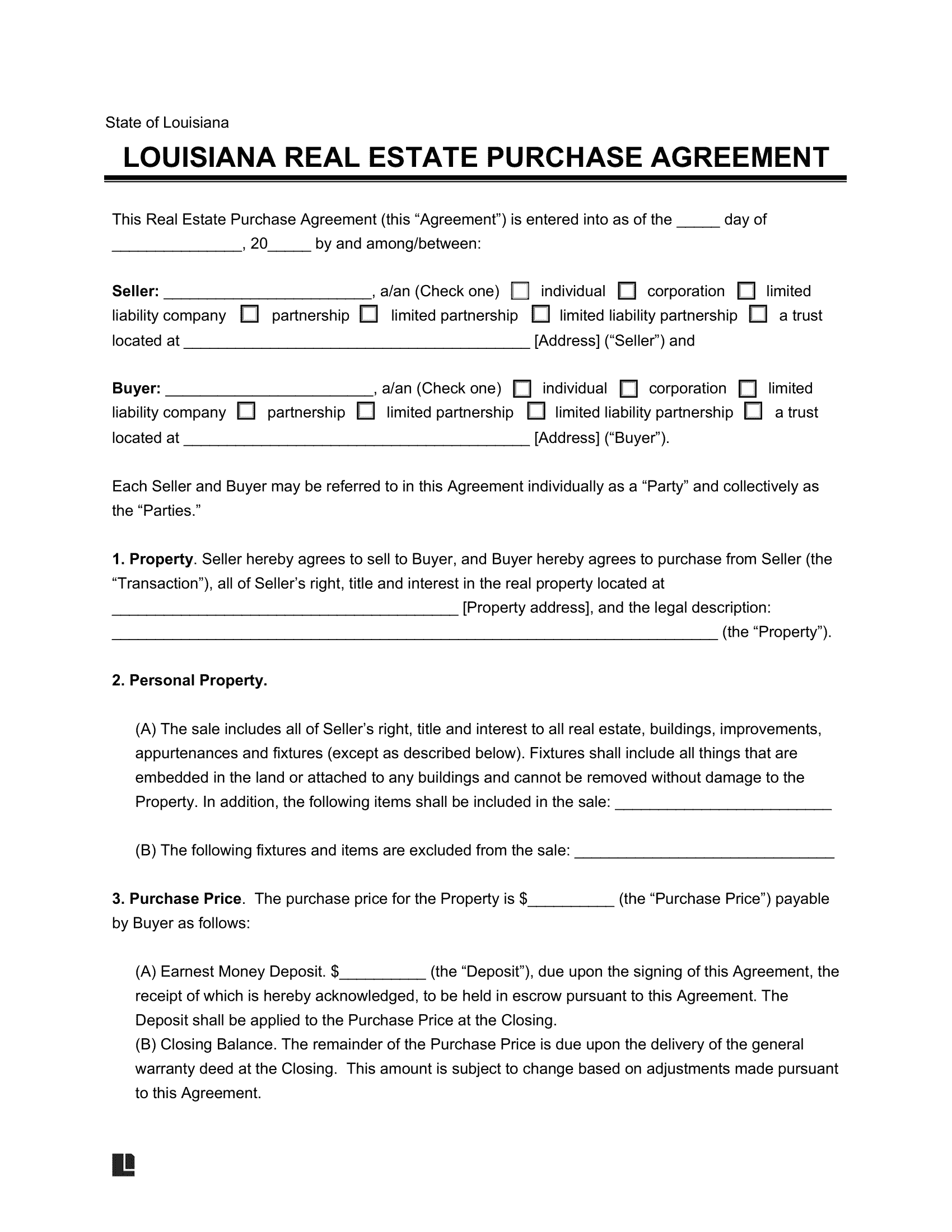A Louisiana residential purchase agreement is a legally binding contract for buying a home. It details the price, closing date, inspections, and earnest money. The agreement requires seller disclosures and signatures from both parties to finalize.
The contract emphasizes the need for both parties to agree on terms beyond price, such as property conditions and contingencies, to ensure a smooth transaction. Once signed, it can only be changed with mutual consent.
Required Seller Disclosures
Lead-Based Paint Disclosure
Federal law (42 U.S. Code § 4852d) requires sellers to disclose any known lead hazards for homes built before 1978.
Property Disclosure Statement
A seller's representative is obligated to inform potential purchasers about any recognized issues with the property, including environmental dangers, structural problems, and complications with the title, according to § 9:3198.
Other Disclosures:
Cavity Within Salt Stock/Solution Mining Injection Well Disclosure Statement: Sellers must disclose if the property is over a salt stock cavity with water or within 2640 ft. of a solution mining injection well [1] .
Homeowner Association Disclosure: Sellers need to inform buyers if joining the homeowner’s association is mandatory for the property they are purchasing [1] .
Methamphetamine Disclosure Statement: If the property was used as an illegal meth lab, this must be declared in the property disclosure documents [1] .
Do Sellers in Louisiana Have to Disclose Property Defects?
In Louisiana, sellers must disclose material defects in real estate. This contrasts with caveat emptor states where buyers are responsible for finding defects, and may not have recourse if they don’t conduct thorough inspections.


